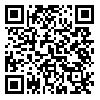BibTeX | RIS | EndNote | Medlars | ProCite | Reference Manager | RefWorks
Send citation to:
URL: http://ijdld.tums.ac.ir/article-1-5369-en.html

 , Firoozeh Mostafavi2
, Firoozeh Mostafavi2 
 , Homamodin Javadzade1
, Homamodin Javadzade1 
 , Behzad Mahaki3
, Behzad Mahaki3 
 , Elahe Tavassoli4
, Elahe Tavassoli4 
 , Gholamreza Sharifirad *
, Gholamreza Sharifirad * 
 5
5
2- 2. Department of Health education and promotion, Faculty of Health, Isfahan University of Medical Sciences, Isfahan, Iran
3- 3. Department of Biostatistics and Epidemiology, Faculty of Health, Isfahan University of Medical Sciences, Isfahan, Iran
4- 4. Department of Public Health, Faculty of Health, Shahrekord University of Medical Sciences, Shahrekord, Iran
5- 5. Department of Public Health, Faculty of Health, Qom University of Medical Sciences, Qom, Iran ,
Background: Diabetes is a chronic disease that can cause severe complications such as cardiovascular disease, blindness and kidney failure. Given the importance of self-care in diabetic patients, and considering that inadequate health literacy is a serious barrier for the management of diabetes that can affect patients' participation in self-care, Therefore this study aimed to assess the status of health literacy in patients with type 2 diabetes in three domains of functional, communicative and critical and Determine the factors associated with self-care behaviors in these patients. Methods: A cross-sectional study on 187 diabetic patients referred to Hazrat Ali diabetes clinic in Isfahan. The samples were selected by randomly Convenience sampling method. The level of health literacy and Status of self-care behaviors in patients was assessed by a standardized questionnaire (FCCHL) and (DMSES) respectively. Collected data were analyzed Using the ANOVA, t-independent, Pearson correlation coefficient at SPSS v.21 statistical software. Results: The mean age of the study population was 57.40 ± 11.07. Average health literacy score and self-care behaviors of the participants were 2.28± 0.57 and 3.84 ± 1.56 respectively. There was significant relationship between total health literacy, communicational and critical health literacy with self-care behaviors. There was no significant relationship between functional health literacy and self-care behaviors. Communicational health literacy was associated with diet, physical activity, blood glucose monitoring and foot care. Critical health literacy was associated with physical activity, blood glucose monitoring, foot care, and taking medication. There was no significant relationship between Communicational health literacy and taking medication and also between critical health literacy and diet. Conclusion: Considering that communication and critical health literacy was associated with the self-care of patients with diabetes so Emphasis and consideration should primarily be given on skills related to these domains of health literacy. Since that Patients’ functional HL capabilities that was associated with basic skills in reading and writing was not related to self-care, therefore assessment of education levels alone in the clinical setting is not recommended.
Received: 2015/06/23 | Accepted: 2015/06/23 | Published: 2015/06/23
| Rights and permissions | |
 |
This work is licensed under a Creative Commons Attribution-NonCommercial 4.0 International License. |



